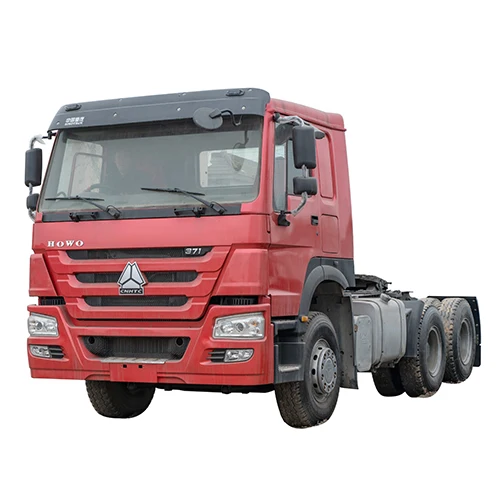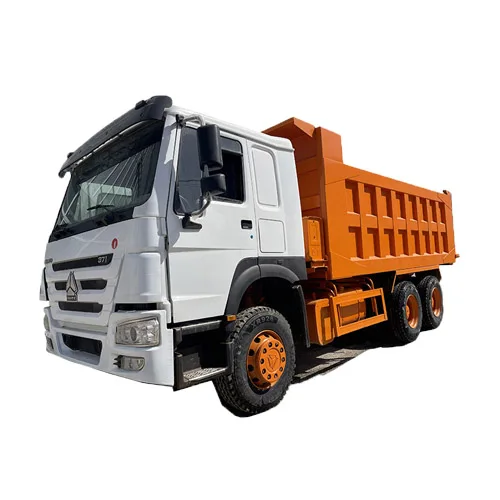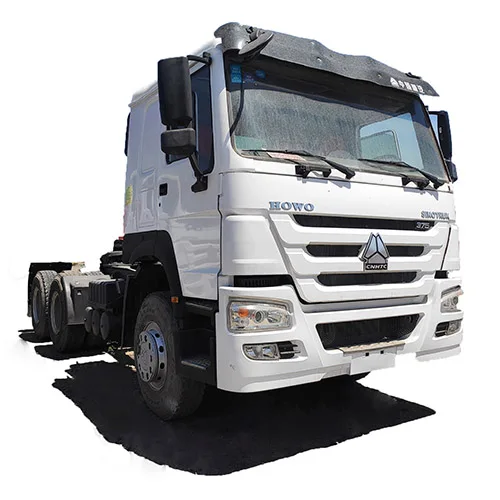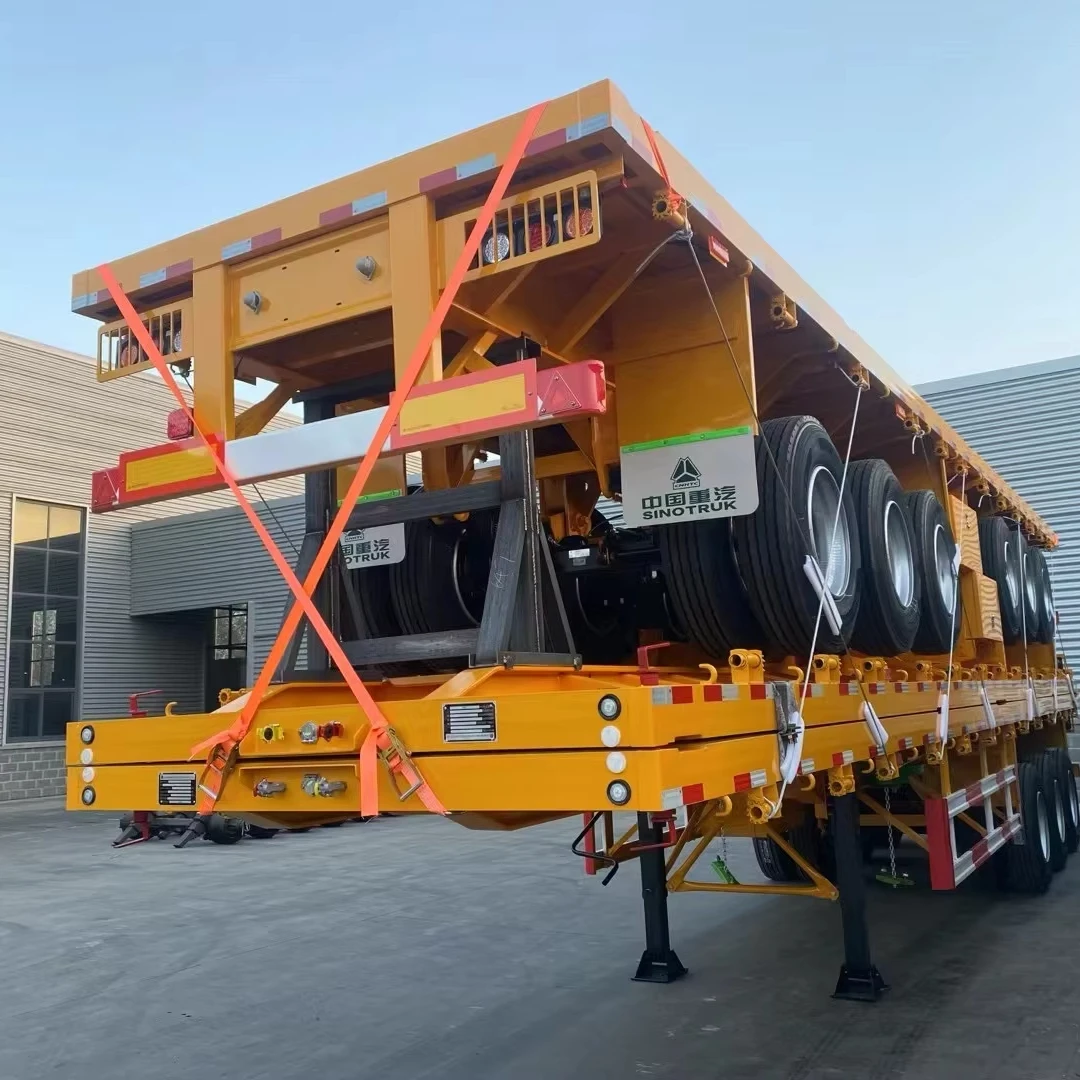Key Advantages of Flatbed Trailers
Unrestricted Loading Capabilities
Flatbed trailers give workers massive flexibility when loading stuff onto them, which makes these trucks perfect for all sorts of different jobs around town. The open top design means crews can load and unload from whichever side works best at the moment, cutting down both time spent and how many people need to be involved. Regular enclosed trailers have strict limits on how tall or wide things can be, but flatbeds don't face those same restrictions. That's why they're so good for carrying big items that just won't fit anywhere else. For logistics companies dealing with tight schedules, this kind of freedom really matters because it keeps everything moving smoothly instead of getting stuck waiting for special arrangements. Construction crews love them too since they can haul beams, pipes, and other bulky materials right off the truck without needing extra equipment to maneuver things around.
Accommodating Irregular Shapes and Sizes
Flatbed trailers stand out because they can move all sorts of weird shaped stuff and really big cargo that other trucks just can't handle. Think about those massive construction beams or excavators that need special transportation. Standard enclosed trailers simply won't work for these things since they're either too long or too tall. The open top design means nothing gets squished or damaged during transport, making everything safer on the road while also saving time at loading docks. For companies in fields like infrastructure development or industrial manufacturing, this kind of flexibility isn't just handy it's practically necessary when dealing with all the different types of equipment and materials that come through their operations daily. Businesses relying on regular shipping often find themselves stuck without proper transport options until they switch to flatbed solutions.
Superior Weight Capacity for Heavy Equipment
Flatbed trailers really shine in the world of heavy equipment transportation because they can carry massive weights. Some models actually handle around 48,000 pounds or even heavier stuff, which makes them perfect for places like construction sites and mines where big machines need moving around all the time. For companies dealing with regular shipments of bulky gear, this kind of load capability means fewer trips back and forth, saving both time and money on extra truck rentals. What sets these trailers apart isn't just their ability to haul weight but also how dependable they remain under pressure. Construction crews especially appreciate this when transporting excavators or bulldozers across job sites without worrying about breakdowns mid-transit.
Essential Features for Heavy Load Transport
Specialized Deck Designs: Step vs. Lowboy
Choosing the correct trailer deck design matters a lot when it comes to moving heavy stuff around without issues. Step decks work well for items needing some headroom but also benefit from extra length on the platform side. Think about things like machines that aren't super tall but still need space along their base. On the flip side, lowboy trailers have much shorter deck heights compared to regular trucks. This actually helps when shipping really tall equipment because it brings down how high everything sits overall, making those trips under bridges or through tunnels possible without headaches. Knowing these differences between step decks versus lowboys really impacts whether transport goes smoothly or turns into a nightmare situation later on down the road.
Load Securement Systems and Safety Tech
When moving heavy freight across country, proper load securement isn't just important—it's absolutely necessary. Good securing systems using things like chains and binders stop cargo from shifting while vehicles are in motion, cutting down accident chances considerably. Safety tech has also come a long way. Take anti-lock brakes for instance. These systems give drivers better control when stopping suddenly, especially on wet roads where regular brakes might lock up completely. Following Department of Transportation guidelines for how loads should be secured remains non-negotiable for any serious transporter. But beyond regulations, smart businesses invest in newer safety features too. After all, nobody wants their shipments damaged or worse, cause an accident that puts lives at risk.
Extendable Trailers for Oversized Cargo
Extendable trailers provide a flexible way to move oversized loads around. The main thing is these trailers can actually change their length depending on what needs to be carried, stretching all the way to 65 feet when needed. This kind of adaptability works really well for moving those super long items we see so often in construction sites or industrial settings like big steel beams and massive pipe sections. Plus, they help stay within legal limits for road transportation. When companies have to ship these huge things, having one trailer that adjusts instead of making several separate trips saves both time and money. That's why many logistics managers are turning to extendable options these days for their special cargo needs.
Regulatory Framework for Oversized Loads
Permit Requirements by Dimension
Getting permits for oversized loads begins by figuring out what size counts as too big according to local rules. Most places need permits if something measures over 8½ feet wide or taller than 13½ feet high. Companies transporting anything bigger than normal limits have to get approval from their state's transportation department first since each state has different rules about what counts as oversized. Knowing all this isn't just paperwork hassle either it saves money on potential fines down the road and keeps operations running without hiccups during transport of those really large shipments across state lines.
Pilot Car and Escort Vehicle Protocols
For big shipments on the road, pilot cars and escort trucks are essential for keeping everyone safe. Anything that's bigger than normal size usually needs these extra vehicles around it. They do important work managing traffic so the huge load can move safely through roads without causing problems. Following local rules about how many escorts are needed isn't just about staying legal either it protects what's being hauled plus all the other drivers nearby. The people in those lead and follow vehicles actually do several jobs at once guiding the way forward, making sure nothing blocks the path ahead, and watching out for potential dangers that might not be obvious from inside the main transport truck.
State-Specific Travel Restrictions
Dealing with the maze of different state travel restrictions remains a major headache when moving oversized loads across the country. Every jurisdiction seems to come up with its own set of rules regarding when and where these big shipments can go. Some places only allow them during daylight hours for safety reasons, which makes sense given how hard it is to spot an enormous load at night. Keeping track of all these regulations isn't just good practice it's absolutely necessary if companies want to avoid fines and keep their cargo moving on schedule. When truckers understand the specifics behind each state's requirements, they tend to experience fewer roadblocks and get deliveries made right on time instead of getting stuck waiting for permits or rerouting unexpectedly.
Industry Applications and Use Cases
Construction Machinery Transportation
Flatbed trailers are essential for moving heavy construction gear like excavators and bulldozers around job sites. What makes these trailers so useful? They let workers load equipment from any direction, which matters a lot when space is tight on active construction zones. Construction crews appreciate how easy it is to get big machines onto and off of flatbeds without disrupting workflow. According to industry reports, companies that maximize their flatbed trailer usage often cut down loading times by roughly 30 percent. This time savings translates directly into better productivity across construction projects and helps keep those project budgets under control.
Energy Sector Equipment Logistics
Flatbed trailers play a vital role in moving around wind turbine blades and massive oil rig components throughout the energy industry. Wind turbines alone can have blades over 300 feet long, so standard trucks just won't cut it for transporting these giants. Energy companies need specialized trailers that can handle extreme weights while keeping everything stable during transit. According to recent market reports, when flatbeds aren't available or properly maintained, projects get delayed and costs balloon. A single day's delay at a wind farm installation site can cost operators tens of thousands. That's why most major energy firms invest heavily in their own fleet of heavy duty flatbeds. These custom built trailers make sure those giant generators and drilling equipment reach their destinations intact, which keeps entire energy grids running smoothly across the country.
Agricultural and Industrial Implement Hauling
Farmers rely heavily on flatbed trailers when transporting all sorts of heavy machinery across their fields and between properties. These trailers can handle really wide and awkward loads without much trouble something that regular trailers just cant manage. The flexibility makes a big difference during planting season when time is money. Getting equipment where it needs to go quickly means crops get planted on schedule and harvests dont get delayed. For anyone who owns or manages farmland, flatbed trailers are practically indispensable for moving things like combines and tractors around. They save both time and money while keeping the whole farming operation running smoothly from one field to another.
Flatbed trailers are indispensable across various sectors, from construction and energy to agriculture, underpinning the freight industry's adaptation to oversized load requirements. As industries increasingly depend on the advanced logistics solutions these trailers offer, their role in optimizing supply chains becomes ever more critical.
FAQ Section
What are the main advantages of flatbed trailers?
Flatbed trailers offer unrestricted loading capabilities, can handle irregular shapes and oversized cargo, and have superior weight capacity for transporting heavy equipment.
How do flatbed trailers assist in transporting oversized loads?
Flatbed trailers allow for easy loading and unloading, accommodate larger and unconventional loads, and are equipped with extendable designs to adjust for varying load sizes.
Why are flatbed trailers important for industries like construction and agriculture?
They are crucial because they simplify transport processes, reduce loading times, boost productivity, and enhance supply chain efficiency by handling large and awkward machinery easily.
Do I need special permits to transport oversized loads with flatbed trailers?
Yes, transporting oversized loads often requires specific permits from the state's Department of Transportation based on dimensions exceeding legal thresholds.





